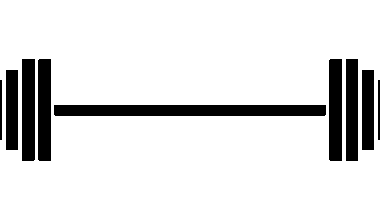Balancing Muscle Gain and Fat Loss Challenges
In the pursuit of fitness goals, many enthusiasts often face the dual challenges of muscle gain and fat loss. Achieving both simultaneously may seem daunting, but understanding how to effectively balance these goals is key. This challenge often arises in various contexts, whether for athletes or casual gym-goers. Muscle gain necessitates adequate calorie intake to promote growth, while fat loss requires a caloric deficit to shed pounds. For optimal results, one must find the perfect combination of strength training and dietary adjustments. Incorporating a well-structured program focused on both aims can yield impressive results over time. Adjusting macronutrient ratios forms the foundation of success. High protein intake supports muscle hypertrophy while moderate carbohydrates provide energy. Additionally, healthy fats should not be overlooked, as they play vital roles in hormonal balance.
Furthermore, utilizing strategic workout plans is essential. Progressive overload with compound movements such as squats and deadlifts creates a strong muscle-building foundation. Implementing high-intensity interval training (HIIT) facilitates greater fat loss while preserving lean muscle. Many individuals benefit from periodization – cycling between bulking and cutting phases. This systematic approach allows for targeted strength gain followed by focused fat loss. Keep in mind that recovery is equally crucial. Adequate rest, sleep, and hydration are fundamental for both muscle recovery and overall progress. Track your workouts and nutrition to identify what works best. Utilize apps or journals for this purpose. Adopting a growth mindset empowers individuals to overcome setbacks. So embrace the challenge, stay consistent, and remember to celebrate small victories along the journey to achieving both muscle gain and fat loss.
Nutrition Strategies for Success
Nutrition plays an instrumental role in balancing muscle gain and fat loss challenges. Focus on whole, nutrient-dense foods that provide essential vitamins and minerals needed for recovery and strength. Lean proteins such as chicken, fish, and legumes help repair and build muscle tissue effectively. Incorporating complex carbohydrates like whole grains and vegetables provides sustained energy support for workouts. Healthy fats found in avocados, nuts, and olive oil are crucial for hormone regulation. Creating personalized meal plans can aid in achieving your goals while adhering to a structured eating schedule. Monitoring portion sizes helps maintain caloric awareness, which is vital for managing both muscle gain and fat loss. Implementing a meal prep routine ensures you have nutritious options readily available. This not only saves time but also minimizes the temptation to indulge in unhealthy choices. Adjusting meal timing also plays a role; consuming protein-rich foods post-workout accelerates muscle recovery. Staying hydrated is equally important, as proper hydration supports optimal metabolism and physical performance.
To maintain balance in your nutrition plan, consider incorporating intermittent fasting or carb cycling strategies. These can help manage caloric intake while supporting muscle preservation. Intermittent fasting can promote fat loss without compromising muscle gains, while carb cycling helps regulate energy levels. Keep an eye on your body’s response to these strategies and be ready to adjust. Remember, consistency is vital; aiming for a balanced plate at every meal can lead to sustainable success. Fueling your body adequately while allowing for a caloric deficit during fat loss phases may require patience. Establishing a balanced diet does not mean depriving yourself; instead, focus on moderation and making healthier choices. Finding healthy substitutes for your favorite foods can help satisfy cravings without derailing your progress. The psychological aspect of nutrition should also be considered—enjoying the process leads to a healthier and more enjoyable fitness journey. Stay flexible, and remember that each individual is different in their nutritional needs.
Effective Workout Regimens
Incorporating effective workout regimens is essential to balancing muscle gain and fat loss. Designing a balanced fitness program involves a combination of resistance training, cardiovascular exercise, and flexibility work. Strength training should primarily focus on compound exercises, which engage multiple muscle groups simultaneously. This approach is not only time-efficient but also maximizes muscle growth. Aim to lift heavy weights with proper form and progressively increase intensity. Cardio is vital for burning calories and promoting fat loss. Depending on your fitness level and preferences, enjoy various forms of cardio, such as cycling, running, or swimming. Keep sessions varied to avoid plateaus and maintain engagement. Additionally, incorporating flexibility exercises like yoga improves mobility, enhances recovery, and reduces injury risks. Establishing a weekly exercise schedule can help maintain consistency and ensure that all elements are included. Incorporate at least three resistance training sessions weekly, combined with cardiovascular training.
As you progress, monitor your results and be open to adjustments. You may find that certain exercises yield better results or that shifts in your routine can enhance motivation. The importance of tracking progress cannot be overstated; this includes noting changes in body composition or strength levels. Supplements can also complement your efforts, especially when trying to meet nutritional goals like protein intake. However, choose wisely, focusing on well-researched options to support muscle recovery and overall health. Popular choices include whey protein, creatine, and branched-chain amino acids (BCAAs). Keep in mind that supplements are most effective when combined with a balanced diet. Engaging with a professional trainer can provide personalized guidance and accountability. Their expertise can help tailor a program suited to your specific needs, ultimately enhancing your chances of success in achieving both muscle gain and fat loss simultaneously. Patience and perseverance are essential.
Maintaining Motivation
Staying motivated and committed to your muscle gain and fat loss challenge is crucial for long-term success. Set realistic, achievable goals that help measure your progress. Small victories, like increasing weights or adjusting body composition, contribute significantly to overall motivation. Visualizing your goals, through mood boards or fitness logs, helps maintain focus and enthusiasm throughout your journey. Engaging with a community, whether online or in-person, fosters accountability and provides support. Sharing your experiences with like-minded individuals can inspire perseverance during challenging times. Consider participating in group workouts, fitness classes, or online forums to connect with others pursuing similar objectives. Tracking progress and celebrating milestones retains motivation, whether it’s fitting into an old pair of jeans or achieving a personal best in lifting. Schedule regular check-ins with yourself to assess what’s working and what may need adjustment. Listening to your body and acknowledging the importance of rest days helps prevent burnout, allowing for sustained effort. Balancing muscle gain and fat loss challenges is undoubtedly demanding, but with dedication and consistency, everyone can achieve useful outcomes.
Remember, fitness is a journey, and recognizing that it’s okay to have ups and downs is critical. Embrace setbacks as learning opportunities rather than failures. Being flexible in your approach encourages long-term engagement with the process. Maintaining a positive mindset leads to better adherence to your fitness regime. It’s also essential to focus on the bigger picture: improving overall health and well-being rather than merely numbers on a scale. Incorporating enjoyable activities, exploring new workouts, or varying your nutrition can prevent monotony and keep excitement alive in your routine. Motivational quotes may also serve as daily reminders to stay focused on objectives. As one final tip, don’t hesitate to enlist the help of a fitness coach or nutritionist. Their expertise can provide necessary insight, help refine strategies, and support your journey towards achieving the delicate balance of muscle gain and fat loss. Celebrate the process and pave the way for a balanced approach to fitness. The ultimate goal lies in establishing a lifelong commitment to healthy practices and overall wellness.


